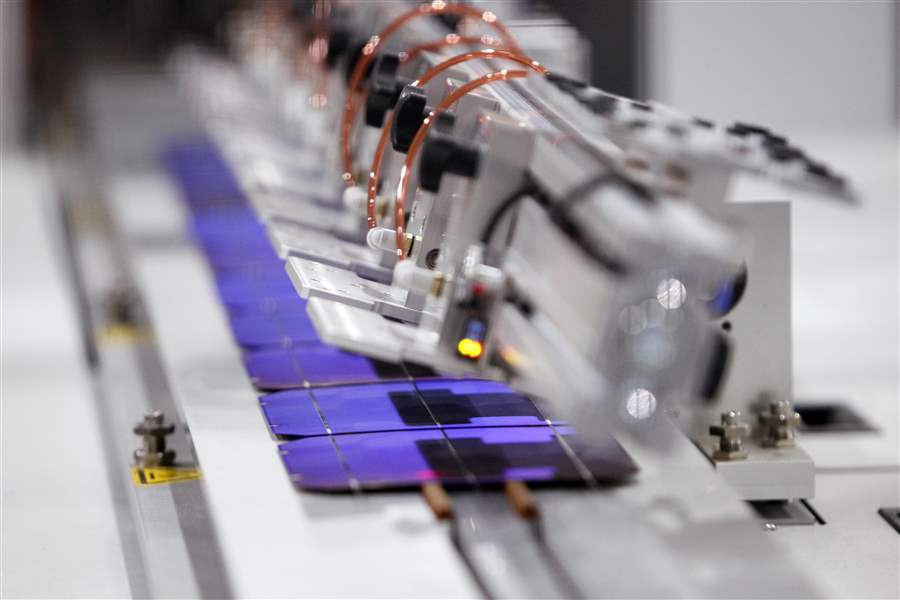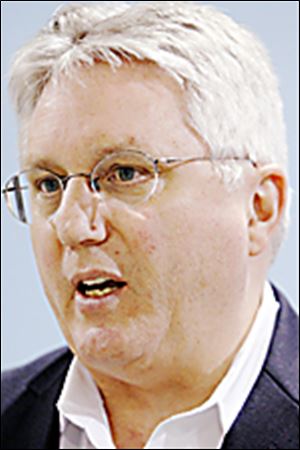
Solar-farm project key to Isofoton’s U.S. vision
Officials have faith plan will go forward
4/17/2013
The Blade/Andy Morrison
Buy This Image

Peck
NAPOLEON — The next six months are crucial to the success of Isofoton North America and the Turning Point Solar Project.
If the project takes off, Isofoton could ramp up its work force to more than 120 people. If not, the Spain-based solar-panel manufacturer will be forced to alter its vision drastically for its U.S. operations.
The company’s plant in Napoleon, which employs between 20 and 40 people depending on needs, failed to reach its goal of having 100 workers by December. The firm had planned to hire more than 300 people.
The Turning Point project near Zanesville — about 60 miles east of Columbus — was to be the largest solar-panel farm east of the Mississippi River.
But in January, its future was put in doubt when the Public Utilities Commission of Ohio rejected a plan that would have funded the project, with fees tacked on to the bills of American Electric Power Co. customers.
AEP is a partner in the project and initially committed $20 million to it. That funding could be allocated elsewhere because of the commission’s decision, Terri Flora, an AEP spokesman, said.
“It could go to a different renewables project,” she said. “We have not decided yet. We are still looking at the numbers and trying to figure out what the next steps are.”
Isofoton executives were counting on the $180 million Turning Point Project to generate the bulk of the work at their facility, which went online at the end of 2012. Michael Peck, chairman of Isofoton North America, said the company now is vying for government contracts and has signed deals in Japan to keep Isofoton’s assembly line moving.
Mr. Peck said the company also has incoming business from Mexico and around the world.
“We obviously came to a halt with the business model,” he said. “Our business model was one that didn’t focus on government subsides and focused on deals with companies and entities related around the production of our factory. Things have not worked out quite as we have planned; they almost never do.
“The mark of any successful start-up is a certain degree of flexibility. We’re trying to demonstrate that.”
Isofoton was partially funded with two state loans. It received a $5 million loan from the Ohio Air Quality Development Authority and a $3 million loan from the Ohio Development Services Agency.
The solar-panel producer is in good standing with the air authority, but it must create 120 jobs by March, 2015, as part of its loan agreement. The development-services agency also requires the firm to create 120 jobs by 2015, and Mr. Peck said the company is current with that loan too.
Although the fates of Isofoton and Turning Point are closely linked, Mr. Peck and a project representative are confident things will move forward.
Dave Celona, a Turning Point spokesman, said the project will be financed with the support of customers interested in purchasing power or a stake in the project. In order for Turning Point to be viable, most of the 49.9-megawatt project must be financed, he said.
“We’ve got numerous conversations with community offtake partners,” Mr. Celona said. “Certainly, we are engaged in conversations that I would consider to be formal and serious.”
Contact Kris Turner at: kturner@theblade.com or 419-724-6103.